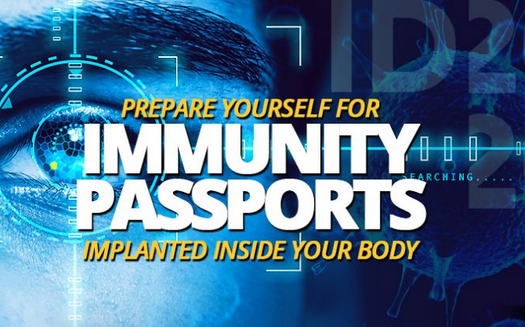Coronavirus: WHO: No Immunity Passport, Antibody Could Not Protect From a Second Infection

Recently, some governments suggested that the detection of antibodies to the Coronavirus (COVID-19), could be taken as an “immunity passport” or “risk-free certificate”. In this case, those with COVID-19 antibody could be able to travel or to return to work with the assumption that they are protected against re-infection. And this also is the basis of “Group Immunity” strategy in some Europe countries. There is currently no evidence that people who have recovered from COVID-19 and have antibodies are protected from re-infection.
Now WHO said in its daily epidemic brief that there is no good evidence showing that people with COVID-19 antibody could be protected well from a second infection. Hmm, sounds worse. WHO is the organization with professional and scientific attitude to any kinds of world wide heath related issues. We have to believe it before any evidence comes out.
- COVID-19 Vaccine By Oxford University Will Begin Human Body Trials On Thursday (2020/04/21)
- New Mutating of Coronaviurs May Affect COVID-19 Vaccine Research and Development
- Breakings News of Coronavirus at Apr 4, 2020
- Mask-Wearing Policies Added to San Diego County’s Public Health Order
- Fighting Against COVID-19 is A Life Long War
Based on the data available, WHO recommends that antibody testing be used only for research purposes, and should not be used to determine whether a person is safely return to work. Antibody testing is critical and helpful for the research of COVID-19 vaccine development and some other health related topics. Because the accuracy of the antibody test is not yet clear enough, and if coronavirus antibody is used as the return-to-work standard, people who antibody test positive may ignore the public health recommendations, there still have risk of of epidemic transmission increment.
In fact, after being infected with a certain virus, humans may not necessarily gain immunity to the pathogen. After the body is infected with the virus, there will first be a non-specific innate reaction to slow down the discomfort caused by the virus invasion, and then an adaptive reaction, during which the body will produce antibodies that specifically bind to the virus, in addition, the body will also produce T cells to recognize and eliminate other cells infected with the virus. that is called cellular immunity. The adaptive response generated by the combination of these two types of immunity can help the body to clear the virus. Only when the adaptive response is strong enough, the body could be prevented from being infected with the same virus again.
WHO pointed out in a statement that most of the existing research shows that people recovered from coronavirus infection will have antibodies to this virus, but some of them have a lower antibody level in the blood, which means that T cells’ “Cellular immunity” may also be critical for patient recovery.
According to Yonhap News Agency, on April 22, South Korea ’s Central Epidemic Prevention Headquarters stated that there were 207 recovered cases being tested positive again. 39 specimen of those patients were processed virus isolation and testing again. The result is negative, which means that they are hardly contagious or less contagious.
The South Korean epidemic prevention department speculates that even after the patient produces neutralizing antibodies, the virus cannot be completely eliminated, and the time that the virus remains in the human body varies.
